Culturing Creativity: Freefall Writing
This time on Dear Writer, we thought we’d try out some freefall (aka free writing) and talk about our experience and its usability as a creative writing tool.
On this episode, we discuss what freefall writing is, different uses for it, and how it can inspire creativity. We gave ourselves ‘homework’ of completing two freefall writing exercises—one with a prompt and one without—to be able to analyze the method.
Listen in to find out more.
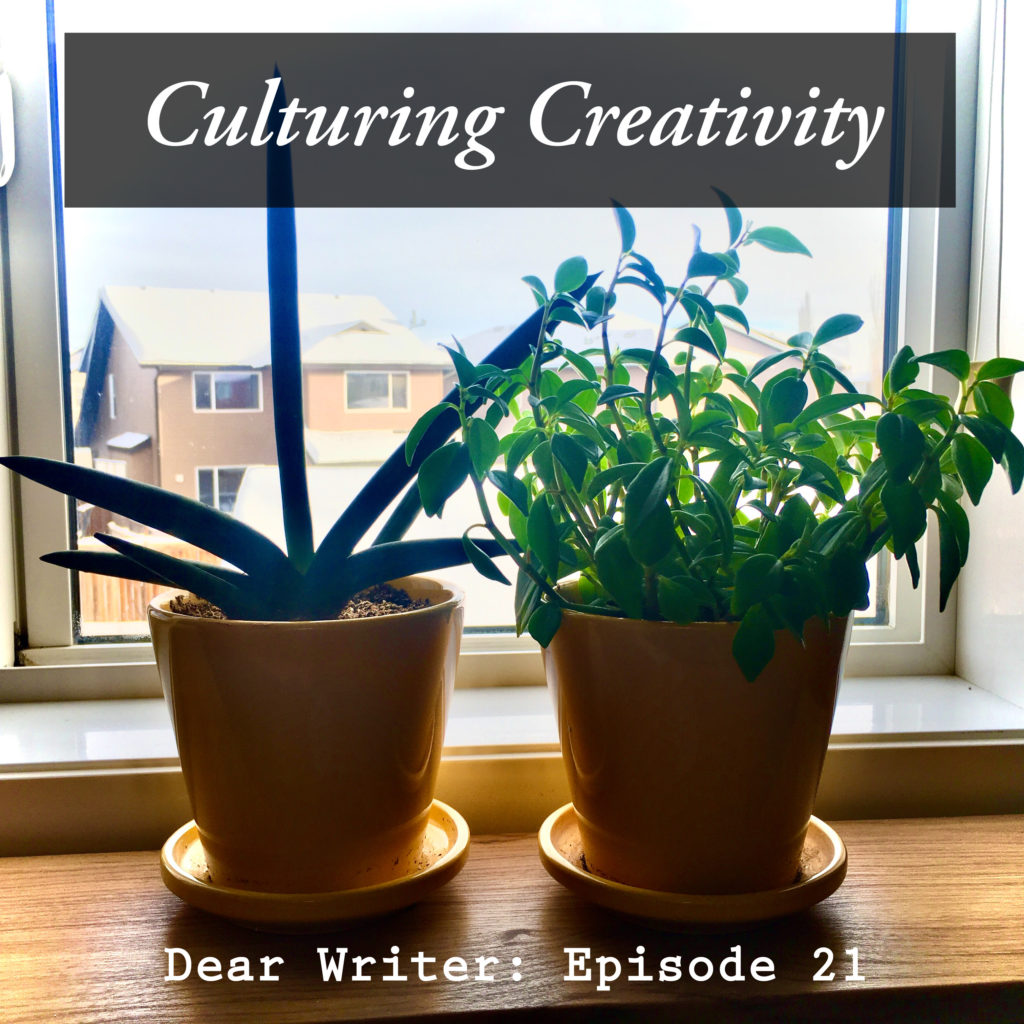
Transcript
Ashley: Hey everyone, welcome back to Dear Writer. Today it is episode 21, and it’s another one of our creative life episodes, where we’re talking about how we culture creativity in our lives. And today’s topic is all about freefall writing. What it is and how you can use it to spark creativity. So we should probably get straight into it. Sarah do you want to tell us a bit about what freefall writing is, because it’s quite a new area for me.
Sarah: Sure, so freefall writing, or free writing it’s sometimes called, is a writing exercise where you simply sit and write for a set period of time without taking your pen off the paper, or your fingers on the keyboard, because you can do it on the computer as well. A key feature of it is that the writer is not supposed to stop and think. You aren’t really supposed to worry about conventions or mechanics or your spelling or grammar. Sometimes people use a prompt to give them direction in their free writing, just something to get things going and such. But you can do it with no prompt as well. And the form of the writing is really completely up to the writer. It could be a short story or thoughts surrounding the topic. It can be like a list or a poem too, but usually it’s more of a flow of words as you’re attempting to create like a direct connection between your thoughts and the paper, or your document if you’re writing on the computer. Basically you don’t want to be stopping and trying to think too hard about the right word, which is why people don’t usually free write poems or lists, because it has to flow, but there is no real wrong way to do it. Because the way everyone thinks is different, the pattern or flow of writing is going to be unique for that individual. So perhaps you naturally think quite poetically, and in that case, a poem would be appropriate, so long as you’re not editing it as you go. So that’s a brief sort of introduction, um Ashley you had a little bit more to add to it as well?
Ashley: Yeah, so when I—I obviously researched a little bit once Sarah said this is what we were going to be doing on this episode—and, from what I read it sort of sounded a little bit like brainstorming to me, in the respect that you’re writing down everything that you can think about a certain topic, no matter how ridiculous it might be. Which is very similar to what you do when you brainstorm ideas around a certain topic. However it is, I guess, there’s quite a large point of difference in the fact that, instead of writing keywords like you would when you’re brainstorming, you’re writing in paragraphs or sentences. Which I guess makes it slightly different, but for those of you who have a more analytical mind like I do that sort of how I looked at it. It’s also a little different because you are going to keep writing, even if you are blocked, I guess either by repeating words if you wanted, like I don’t know, you get the picture of a pen, and you’re like “pen, pen, pen, pen” and then eventually write something else, or you could even just write, “I can’t think of anything right now” which, you wouldn’t really doing a brainstorm, that would be weird. Imagine one of those like big brainstorming bubbles, and you’ve just written the word like—
Sarah: I can’t think of anything.
Ashley: Yeah, I can’t think of anything.
Sarah: Like a pro’s and cons list, can’t think of anything.
Ashley: Nope, still can’t think of anything. Some thoughts will come, I’m sure of it. I don’t know. So why, why do you think writers would use this technique, Sarah?
Sarah: I think there’s a huge number of uses for it, it can help to bring out ideas and inspiration. Something that may not have surfaced in your conscious mind. You might start with a topic and then find there’s a story to tell, for example, and then decide to use it in a more formally structured writing session. Or it could be a form of journaling and getting your thoughts down and out of your head to process… or you could do it to process events of the day. It can be quite cathartic, it can be any number of things. And if you try it I’m sure that you’ll probably find something that is your reasoning for doing it, which is quite personal to you. I think everyone kind of finds their own personal reason for it. What do you think Ashley?
Ashley: I also think there’s quite a few reasons for trying out this freefall technique. When I was having a think about this question, the first thing that came to mind was to help you overcome—I’m going to say the word—writer’s block. I think it can be a good way to start to get, you know, ideas for when you’re stuck. I don’t know, if you’re stuck say in a certain chapter, you know your prompt could be the issue you’re stuck with, and if you just free-write thoughts that come to mind, it could be a good way to get around that. And also just getting words down, I find when I’m stuck writing helps a lot, so it kind of plays into that strategy. Like you said it’s really good way to start to generate ideas. So, again, just by writing down whatever comes to mind about a certain topic, or even not a topic at all just thoughts that are in your mind sometimes you can find that there is a story somewhere in there that could be an interesting topic to start exploring. I also think it can be—I don’t know if this is like a thing, but this is sort of what I thought—that it could be an interesting insight into finding your writing style. Because you’re not trying to stick to any preformed style or way, so I think it’s probably a good way to see how you write. If that makes any sense, like at your most basic instinctual level. Which is quite cool. I don’t know how useful that is, but it’s got to be useful for something.
Sarah: I definitely think it gives insight, like you were saying.
Ashley: Whether or not you can find a use for that I don’t know, but I think that’s at least an interesting side thing that…
Sarah: Might help you find your character’s voice or…
Ashley: Yeah maybe.
Sarah: …You might find that you’re a more poetical kind of writer, and you, you like to use like more description. Which might trend more towards literary writing, for example.
Ashley: Definitely.
Sarah: So, I think that could be quite interesting.
Ashley: Yes. Anyways, so that sort of my thoughts on it at the moment. Have you ever tried this before Sarah?
Sarah: I have. So I first discovered it during my creative dance class which we’ve mentioned once before, on our culturing creativity episodes. So that was pretty interesting we kind of had an activity or something, and then we all came down and opened our books and had about ten minutes of free writing time. And, that was the first time I ever tried it and I was quite intrigued to see the things that I had written down, and after coming back to it and reading through it. And then before covid-19 happened, I also went to a writer’s society here in Calgary, or I was a part of the writers’ society. And they’d hold some freefall writing sessions every Friday, which I participated in. And it was really fun, we’d have a prompt, we’d write for ten minutes and then share it if we wanted, but we didn’t have to. And it was really interesting just to see how different people interpreted a prompt and what different thoughts came up out of the prompt, yeah.
Ashley: Did everyone seem to enjoy that? Slash share their writing?
Sarah: Yeah, most people would share unless it was something that was really personal. I think when you do it with a prompt it’s a bit easier, you’re less likely to come up with… we’ll see later, when we read out our experiences of it, kind of how it developed and why prompts kind of are a little bit easier to work with sometimes. But yeah, it was it was quite fun. Sometimes, the only thing that I found with it, is that it takes a little bit of practice. I tend to have the prompts trigger memories and then, so like it’s fine to write about a memory, and that’s totally cool for your free writing. But when you begin to get a bit more creative with it, you start getting more ideas coming into your head when you get a prompt. And so, then, rather than just like writing the memory or… it’ll end up into like something that’s a bit more creative and a little bit different, like the more you do it I found, so. It’s kind of strange because you still are writing directly from what you’re thinking, but as you get more practice at the free writing, it comes bit easier is what I’d say.
Ashley: Was it weird doing it with a group of people?
Sarah: Not really. I think it was almost better that way in some ways. Because as long as like no one’s—that was the other thing is that we never critiqued the work, it wasn’t a critique writing group. It was simply to share, and so you know, if everyone was like positive and they’d be like, oh, I really liked the way you… or this particular sentence, or. It kind of gave you a bit more insight into your writing, but without the sort of negative critique. of. Because the thoughts could be quite personal, everyone was quite kind and quite open, I think. So I guess it depends what group of people you write with, but mostly people will seem to be pretty happy to share. And occasionally you’ll be like, oh this one’s too personal, I’m gonna pass. And that was fine.
Ashley: That’s real interesting.
Sarah: Yeah.
Ashley: I, as you can probably tell, I have pretty much… well, I’ve never tried it. And I had never even heard of it until Sarah mentioned it on the podcast a while ago, and then she had mentioned that she wanted to try and do a freefall writing exercise on the podcast, so that’s what this episode is. So I’m quite—well obviously I did try it in preparation for this, this podcast and we’ll get into that in a bit more detail—but before that, I was quite excited to give it a go because it… I’m not sure how to phrase it properly. It sounds like a very interesting way to express creativity that I had never really tried before. Because usually, our writing is very structured and we have a very specific voice that we’re channeling. And even other things that I’ve written, like even if I’ve written little parts of stories on my own, they have a very purpose purposeful voice in there. So, I was really intrigued to try it and see what would happen, basically. What would come out of my pen when I tried it. So yeah. I guess that kind of brings us to what our we’ve termed our ‘homework’ was for this podcast. Sarah and I both took the time before this podcast do a couple free writing exercises and then we thought we’d show it, well, we’d read them to you so you could see how one such freefall writing exercise could look like. So for the first exercise we both had a prompt, which Sarah’s lovely husband Dan provided for us in a very a cryptic email.
Sarah: Yep. We didn’t want to… I didn’t want to think about it too hard, so I couldn’t give the prompt myself, because then I’d start thinking about it, and thinking about what I was gonna write. So I was like, oh, we’ll get Dan to send us an email about it. And then I only… I can view the email and write straight away. So, that was why we did it that way. And he was very enthusiastic about it, and supplied us with a photo.
Ashley: He did. Well I like, because I was worried that when the email came through, if it was like a word prompt or something, that had come up in the—because you know how you can start reading the text of your emails when they come through on your phone—so I was worried that would happen. So I hadn’t really looked at my phone, and then I realized he hadn’t done that, and I was like, ah! Then I got to the prompt, I opened it, and I was like oh he’s even attached as a PDF, he’s double protected the picture. And then, when you open the PDF, there… it just says this “your writing prompt follows.” And I was like, he’s even like, triple protected it, so we can’t get down to it until we’re ready to start writing.
Sarah: It was very well thought out.
Ashley: Yes. Do you think we should share the prompt was first, or should we read what we wrote, and tell them what the prompt was at the end?
Sarah: I think we’ll read what we wrote first, and then explain the prompt, because we can even explain a little bit about where the prompt came from as well.
Ashley: Okay.
Sarah: Because it’s a bit of a story behind it.
Ashley: Okay. Who shall we do first? We can maybe do mine because it’s less obvious as to what the prompt was.
Sarah: Sure, yeah. That’s fine.
Ashley: Okay. So, I did my… I’ve been very busy this week, so I found the time to do this one, while I was waiting for my girl guide session to start. So I was there, quite early. So I prepared to do it then, unfortunately people started arriving so I was only able to do it for five minutes instead of, we had talked about doing it for ten minutes, but I only managed for five minutes. Which, I think was enough time anyways to get into flow of it. So mine, I wrote it by hand as well, on a random notepad that I found. So, this is how it goes.
Sharks remind of younger years of my life. Fishing. Adventuring on the big blue ocean with family. The swirling blue ocean. Always alive, always breathing with life; new and undiscovered. Swarms of fish, sharks, dolphins, whales and birds vying for the same thing: food. The need to survive. The fuel to keep living life and the will to keep swimming. Green and blue bubbles thrash the ocean’s surface. A tornado of beings thrashing and darting to prevent consumption, or to consume. White water, frothy and chaotic. Fish swim for their lives. Birds dart from the heavens piercing the water with their beaks and wooshing into the abyss of the ocean.
Sarah: I think it’s really cool. It’s quite nice imagery that came out in your…
Ashley: Yeah, I think so. So, what I did was I had my pen and paper and timer, and then I pretty much opened the picture and pushed go, and then wrote pretty much the first thing that I saw. I didn’t really take time to look at the picture, if that makes any sense, which is why—well obviously, there was a shark in the picture, which I think you could probably tell from this. So that’s where my mind like immediately went to. I think that’s why we get a weird fishing kind of thing. And then I guess I just let the thoughts flow from shark to ocean to… I’m kind of describing one of those workup ball-things. With All the fish jumping around and all the sharks and things trying to eat it, it’s kind of where it went.
Sarah: I think that’s cool, though, like, I mean you guys will see very shortly, our pieces of writing are very different. But I think that kind of shows the versatility of free writing. And, as I said at the start there’s no wrong way of doing it. Like, you just put your pen to the paper and write. And whatever comes out, it’s just like interesting thoughts. So I think it’s really cool yeah.
Ashley: I was very intrigued at where it went. I was like oh, okay. This is where we’ve gone. And then I was kind of aware that, where I had started to go, and I was like well, but now I can’t stop because this is where my mind has gone. And the whole point is just to keep writing whatever comes out so. So I thought it was quite good.
Sarah: I mean you can still like change directions if you’re like, okay I’ve run out of that thought now, like…
Ashley: Yeah.
Sarah: But it does kind of how like one thought trends towards another, which is cool.
Ashley: You’ll definitely see that when we do the next one.
Sarah: I think when I first tried it, it was kind of similar to that. The first time I did it, I looked out the window and then, so I started like describing greenery and just transformed into these thoughts like going from one to the other. Mine this time, I guess, as I said before, when you get more practiced at it you find that the thoughts come to you in different ways. Or like, you know, you might have a story leap immediately into your mind, and so you start writing the story which is basically what’s happened for mine. So I will read mine now, if that’s all good?
Ashley: Yep. Go for it.
Sarah: Did you have anything else you wanted to say? I guess, we can talk about it a bit more later about our overall experience.
Ashley: Yep, nope, sounds good. You go for it.
Sarah: Okay, so I wrote mine on my laptop in the evening after dinner, and I gave myself like a full ten minutes do it, I also sort of took in the picture first and then just started writing. So, here it is.
Annie rounded the corner, her bag drooping on her back as she dragged her tired legs toward home. And then she stopped. There was a shark implanted head-first in the roof of her house. A giant, ugly, (plastic, thankfully) shark. Annie took the scene in, sighed, and walked inside.
“Mom, there’s a shark—”
“—in the roof of our house. I know. I’ve been on hold with the building company all afternoon, they’re going to crane it out.”
Her mother looked frazzled, her face flushed and her hair frizzing over her shoulders. Plaster coated the living room, and the shark’s monstrous face leered down at them, its teeth bared, the eyes cold black and beady. The open jaws were only centimeters away from devouring their television.
“How in the hell…?”
“Language, Annie,” her mother said.
“But how?” Annie repeated, staring at her mother in confusion. The day was a perfect, cloudless blue. She might have expected something like this in tornado weather, but there hadn’t been anything. Not even a breeze. She had simply arrived home to find… this.
Annie’s mom didn’t respond. Apparently, the builders or whoever they were chose that moment to answer. “Finally,” Annie’s mom breathed, rolling her eyes. “Hi, yes. We have a shark embedded in the roof of our living room… I know. Ha, ha. I need to get it out.” The builders said something, and Annie could guess what. “It was supposed to be installed over top of the new aquarium, but it fell off the plane on the way over.”
Finally, an explanation.
“Look, can you remove it or not?”
and that’s it.
Ashley: I like it. It’s so random, but I really like it.
Sarah: It is really random, but then that was partly due to the prompt.
Ashley: The prompt was quite random.
Sarah: So just to explain the prompt. It’s known as The Headington Shark, and it’s a rooftop sculpture located at 2 New High Street, Headington, Oxford, England. Depicting a large shark embedded headfirst in the roof of the house. So it’s really just um, artwork. It’s not actually a real shark, or it doesn’t actually protrude into the house. But kind of looks like it does. So that was what the prompt was.
Ashley: Such a random prompt.
Sarah: And if you’re interested in it, you can look it up, it was quite controversial apparently. But yes. As you can imagine, when you have what looks like a giant shark embedded in a house.
Ashley: Yup. I’m sure the neighbors weren’t particularly pleased.
Sarah: No.
Ashley: So when, I was just going to ask, so when you wrote this, did it just spark a story immediately?
Sarah: Yeah, basically. So I saw that and just started writing and just kept writing. And yeah, I think… I always, I find it quite easy to do for like just a really brief short random story out of nowhere, where I can just sit down and write. When it’s more structured with like bullet points, I find it quite hard. Which, I guess shows that it’s potentially like our style differences, a bit, because I do tend to be a bit more free about my writing and sort of go off the cuff a bit more than what Ashley does. Which is why I find writing to the bullet points a little bit harder. But I think, yeah, free writing is a really good exercise to try and just spark ideas that way. Like, you know, you might start a story and be like oh, actually, this is a really cool story I’m going to turn this into a novel or something. And whether you go away from that and then plan something that’s way more structured, you know it’s totally up to you, or you could just keep writing. So that is one of the things that I find quite interesting about free writing.
Ashley: That is real interesting. I just find it real, real cool that yours sparked an entire story, like a mini story. That’s the last thing that crossed my mind. Like I wouldn’t… unless I had known that you could do that, I wouldn’t have thought of doing that. Do you know what I mean?
Sarah: Yeah. I think it, it almost worked quite well. Like I didn’t give Ashley very much to go on about free writing, I kind of like explained a little bit of what it was, and then was like, here’s what Wikipedia has to say about it. And then I was like, go.
Ashley: I didn’t even read the Wikipedia article until we um, till I made the outline after I’d already done the pieces. I literally just took whatever you had told me in the Facebook chat and I was like okay, we’ll just go with it.
Sarah: I think, though, as I said earlier, it just really shows the versatility of it and how different one person’s thoughts can be from another person’s thoughts. And what’s really interesting is that with us writing together all the time, I guess you could almost expect that we might come up with something similar, but we came up with something entirely different, which is… it’s quite cool. Just how it shows the individuality, a bit more, I guess.
Ashley: So we did a second piece as well, which we did without a prompt this time round. Do you want to just get straight into those?
Sarah: Yeah, I think I can.
Ashley: Okay, so because I’m a scientist, I decided that I had to replicate as best as I could the same conditions as the first time. So, even though I had more time, the second time around, I did stick with five minutes because that’s what I had done before. I even used the same notebook. As I had before, and so therefore I also wrote by hand. So this time I was at our kitchen table, and I guess I had, there was a placement on the table. So to kind of explain it, our table’s plain, there’s nothing on it and I’m facing a blank wall, but there was like a little coaster placemat thing which had a pie on it, which I think is where this came from. And it kind of… anyways I’ll read what written and I’ll kind of explain a bit more. It gets a bit, it gets a bit weird. I apologize.
Strawberry pie. I’ve never made one. Nor thought of making one. Crisp pastry wrapping sweet supple berries. Perfectly browned on top with slits letting out hot steam. Imagine the reactions taking place. Mallard browning, gives us the delicious, mouthwatering taste of fresh baked pastry; flaky and crisp. Molecules bouncing into each other, colliding and reacting. Bonds forming, bonds breaking in a dance of chemistry in its simplest form. Back to basics, back to the elemental and back to a time when life, no, science was more magical. Baking was more than just the transfer of heat from the element in the oven to the pie in question. The increasing speed of molecules. Collisions. Heat transfer.
I didn’t… yeah. It went a direction I wasn’t anticipating, but it was fine. The pie on the placemat wasn’t actually even strawberry, it was blueberry. So I’m not sure why is strawberry came up, but that’s kind of what happened. And then I went weird and science-y, I have a feeling it’s because I’ve been preparing for lectures and I’m guessing that’s probably why that’s where my mind went. Although, my lectures are nothing to do with this topic, but probably kind of brought it to…
Sarah: Well, brings like, work to the surface right?
Ashley: Yeah.
Sarah: I think that was the thing that I found with, without a prompt. Is that if you have anything going on in your mind then you’re gonna end up just spewing onto the paper.
Ashley: Yeah, that’s pretty much what happened.
Sarah: Which, is kind of what I had, but in a slightly different way. So I wrote for ten minutes again on a laptop and it ended up being about a page, but I just decided to share the first paragraph, with you as it’s a little bit personal for me to share over the podcast.
Ashley: Fair enough.
Sarah: So, and it kind of explains itself so I’ll just head straight into it.
As I sit down to complete this, I just can’t get the big things out of my head. The big things that keep swimming around and around until it makes me dizzy. This is the thing. For me, without a prompt, free writing merely becomes a journal entry because my thoughts are far too numerous to be reigned into a single topic; for focus I need a task. Something to do that occupies my brain instead of it travelling on its same old familiar route. So, what is in my head today, you ask. Well, quite a lot.
Dot, dot, dot. And I’m going to leave that as a cliffhanger, because… yeah.
Ashley: It’s very dramatic. It kind of, it reads like—this might sound weird—but it reads like the start of one of those novels where someone’s like prefacing the ridiculousness that’s about to follow and they’re like, so this is what’s happening and well, you can read on, and let me know what you think.
Sarah: At your own peril. Oh dear.
Ashley: But it’s quite interesting, the difference. Because mine, I guess I technically then just found myself a prompt. Sort of subconsciously, rather than I guess it becoming a journal entry. And I never journal-write, either, so that also could possibly be why I didn’t like go into more of a journal-ly type thing. Because I never do it, because it’s just not something I like.
Sarah: Yeah. Whereas, I have done quite a bit of journaling, I haven’t been recently but… so yeah. Just because there’s like so much going on in my head, and I get really stuck in my head—I’m sure a lot of writers can relate to this—so I didn’t even see any of my surroundings like I’m sure I could have like you know, come up with a prompt or something but, you know, my mind didn’t even go to that. It just went straight to, oh my gosh, this happened today, and that happened today, and that happened today. I will admit trying it twice, because I tried it the first time and I realized, I was like, I can’t share this. And I was like, but you know, I didn’t really want to delete it. So I was just like, oh just try again another night. It’ll be fine. I was like, I’ve probably just got too much on the brain today. And then I tried again another night, and the same thing happened, so I was like, oh whatever, that’s just the way goes. That’s what free writing is. So, yeah it just turned into a journal entry.
Ashley: There’s nothing wrong with that though, I don’t think.
Sarah: Yeah. There’s nothing wrong with it being a journal entry, but I think I prefer the prompts, just because it brings up like more creative stuff for me. And then I can kind of, I don’t know, extrapolate like new ideas and stuff better that way. So I guess if you’re looking for inspiration, new ideas, then maybe writing about a prompt might be a good way to do it, rather than necessarily free writing if you’re like me and you think way too much, you like ruminate on your thoughts over and over again.
Ashley: I guess if you did a, um, if you had a more generic prompt, it might kind of be a happy medium between the two ways. Like if you’re prompt was like, the color pink. I don’t know, something a bit more generic so your mind has a little bit more room to create, but you still have, you know, the constraints of a direction to go, rather than just being like, whoa! I don’t know.
Sarah: So, what are your overall thoughts from it, like being first time doing free-writing?
Ashley: I enjoyed it, so I found the one with the prompt definitely easier. Because I guess it just like flicks something in your mind, and you like okay go. The one just without a prompt, I feel like I kind of cheated, because I made myself a prompt.
Sarah: No, that’s not cheating though.
Ashley: Mostly because I wasn’t really sure what, like I don’t know, you’re supposed to do without a prompt. I kind of thought, I don’t know, something would just come to me, but then I was like, uh nothing comes to me. Look there’s a pie on that thing, I’ll just write about that.
Sarah: But that’s fine it’s something coming to you.
Ashley: That’s true. I don’t know, so I think I definitely prefer the one with a prompt, and I can probably… I could probably see the one with a prompt, I can like see a use for it even for if we’re writing say our books, for example, and I’m stuck. I feel like I could actually use it as a tool to unstick myself by giving myself a prompt relevant to the novel, if that makes any sense and then being able to use that to get around sticking points. Whereas I think the one without a prompt is a little bit harder.
Sarah: I think it’s the without a prompt is more if you’re wanting to kind of consolidate your thoughts and to get them out of your brain and onto the paper. Like it feels more of a journaling kind of thing, well for me. Not necessarily, but I guess you know, like it just brings in a versatility to it and, like a sort of openness to receiving ideas from like outside sources. And the more you did it, I think the better at it you’d get for without a prompt. Like I think, I haven’t really done very much without a prompt ever before, so I was like, you know, I just went default and was like—
Ashley: Journal entry.
Sarah: —this is what I’m thinking, bleugh. Which is, as we say, it’s fine to do that, but yeah. Also, I found it mildly uncomfortable in some strange ways. I was like I don’t want this to be a journal entry. I was like, I’m writing what I think, but I don’t want to be writing what I think, maybe I should have written that. But also, like yeah, that the other thing is that sometimes you have more than one thought going on at once.
Ashley: Yeah, at the same time. Mm hmm.
Sarah: Which is slightly confusing because you don’t know what to write. Because I’ll be like thinking about like two things at once, about like, you know, on one side I’ve got like all the events of the day happening, and then on the other side I’m thinking about like the actual writing of it. And then, on the other side of things it’s like thinking about what I want the writing to be, and so it’s quite complex really.
Ashley: Yeah, it was.
Sarah: It was like these layers of thoughts and you’re like, where do I even start with this?
Ashley: I probably, I think writing it by hand helped me because it was a lot slower.
Sarah: Mmm.
Ashley: Yeah, than typing it out. So, I didn’t actually have to think that far ahead because by the time I got, you know, kind of far through it was like, my time was up. I don’t know how it would have panned out if I had typed it, because my typing is a lot faster than my writing by hand, and so that would be interesting to see if that would have changed anything, or not. Probably would have been a lot more… because you’ll see one part where I like obviously there was, I didn’t want to use that word. When I was like, back to the elemental and back to a time when life, no, science… like obviously I’d written, I wrote life and I was like, no, I don’t want that word. And then I was like, oh no, I can’t cross it out and so I was like, no, science.
Sarah: That’s funny.
Ashley: So I think there probably would have been more of that if I had typed it.
Sarah: Yeah. Well…
Ashley: So, no, it’s very interesting. I might do it again if I get stuck and things, I think. Or at least the prompt one.
Sarah: Yeah. So I think we’re, we are probably out of time now. So I’m just trying to think. So next week we are having another of our author spotlight series, where we talk to other writers about their writing journey, so tune in to that.
Ashley: Yup. In that same vein though, we do have some spots left on author spotlight section, so if you’re keen to join us and have a chat about your writing, any books that might be coming out, feel free to apply, you can just do that by heading to our website www.lindersoncreations.com, and going to the podcast section, and there should be a link there that you can follow and fill out a form. It’s just to help us get to know you a bit better and know what sort of questions to ask you.
Sarah: Yeah. And we are also available if you wanted to chat with us, you can get hold of us on Facebook or Instagram at just lindersoncreations. And it would be really great if you could, if you liked this show, if you would rate and review on apple podcasts, or subscribe on any other podcatcher that you use, tell a friend about us, and yeah. Happy writing everyone.









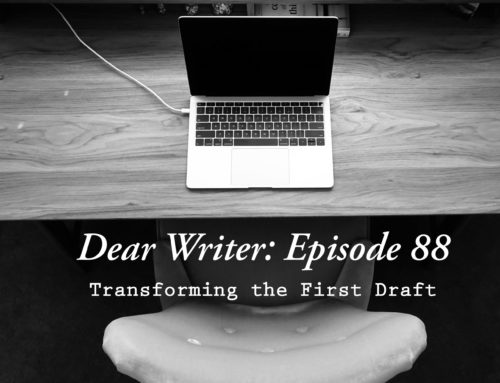
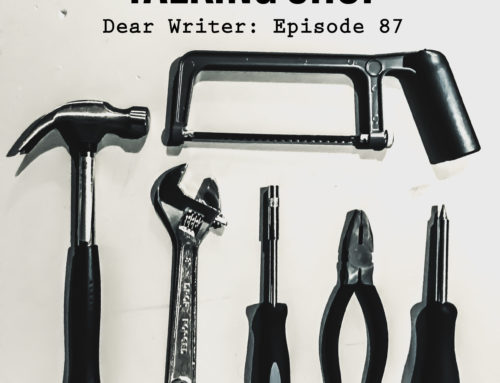

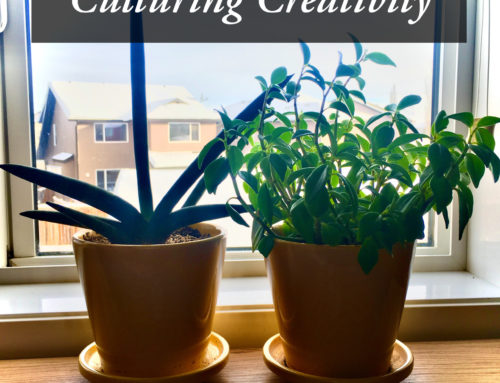

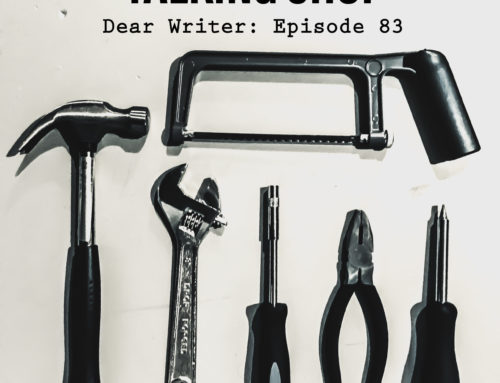


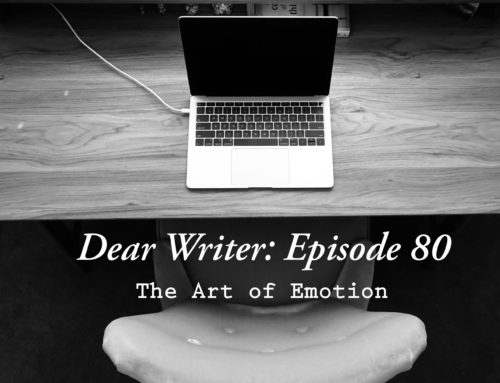
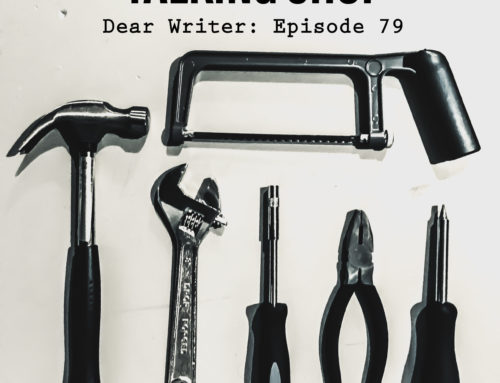
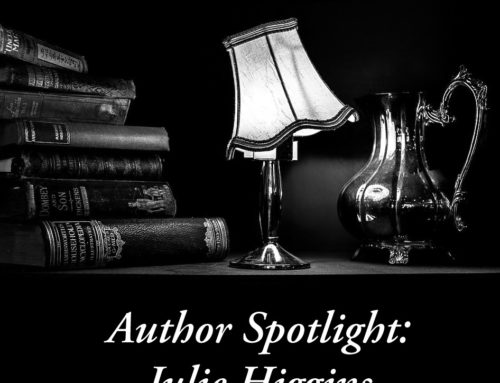
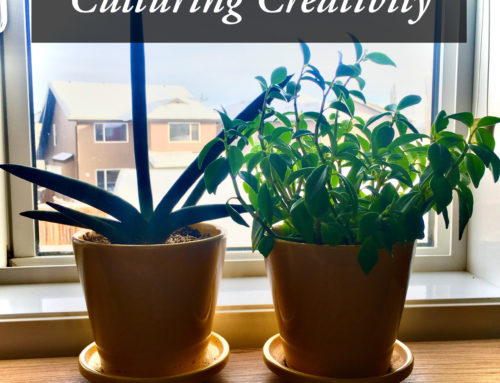
Leave A Comment